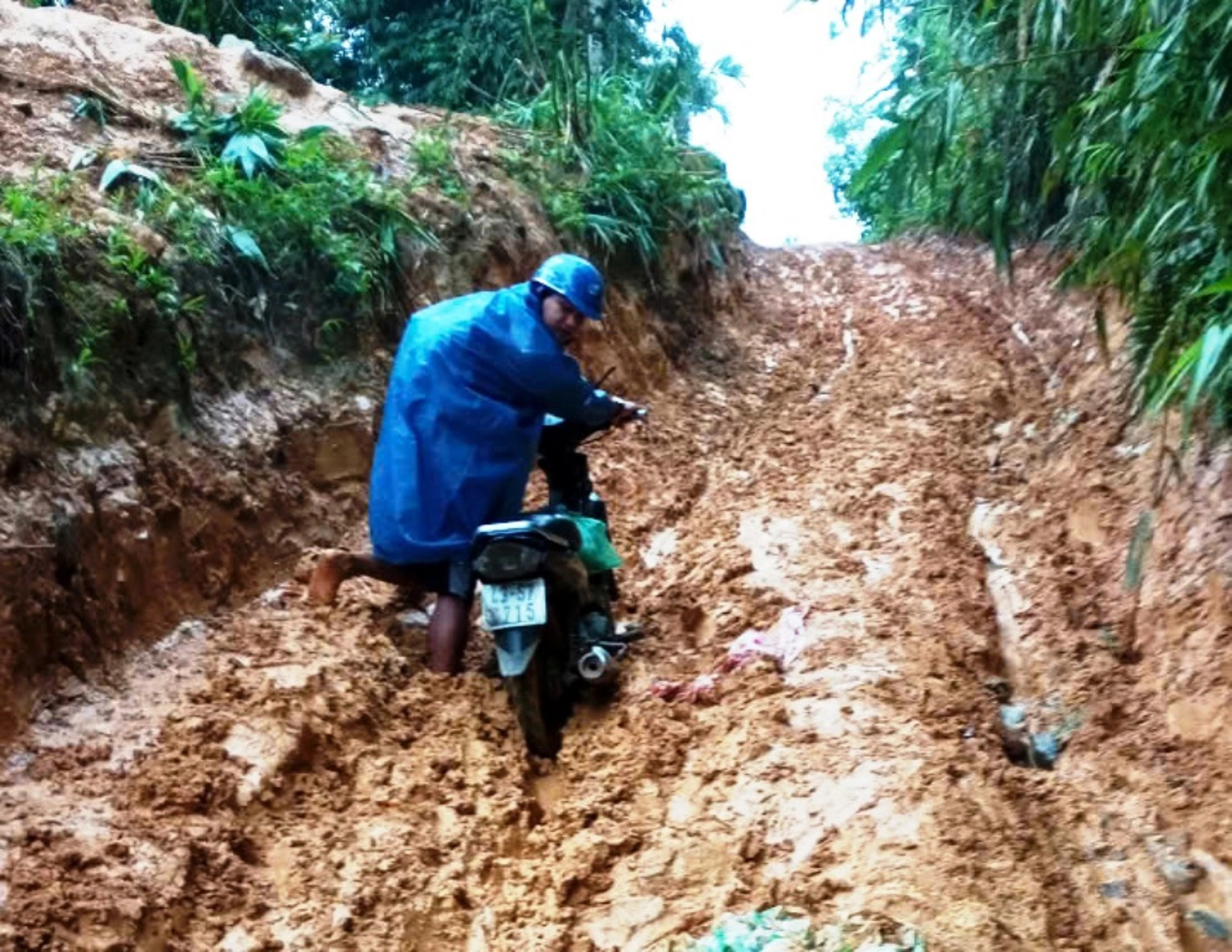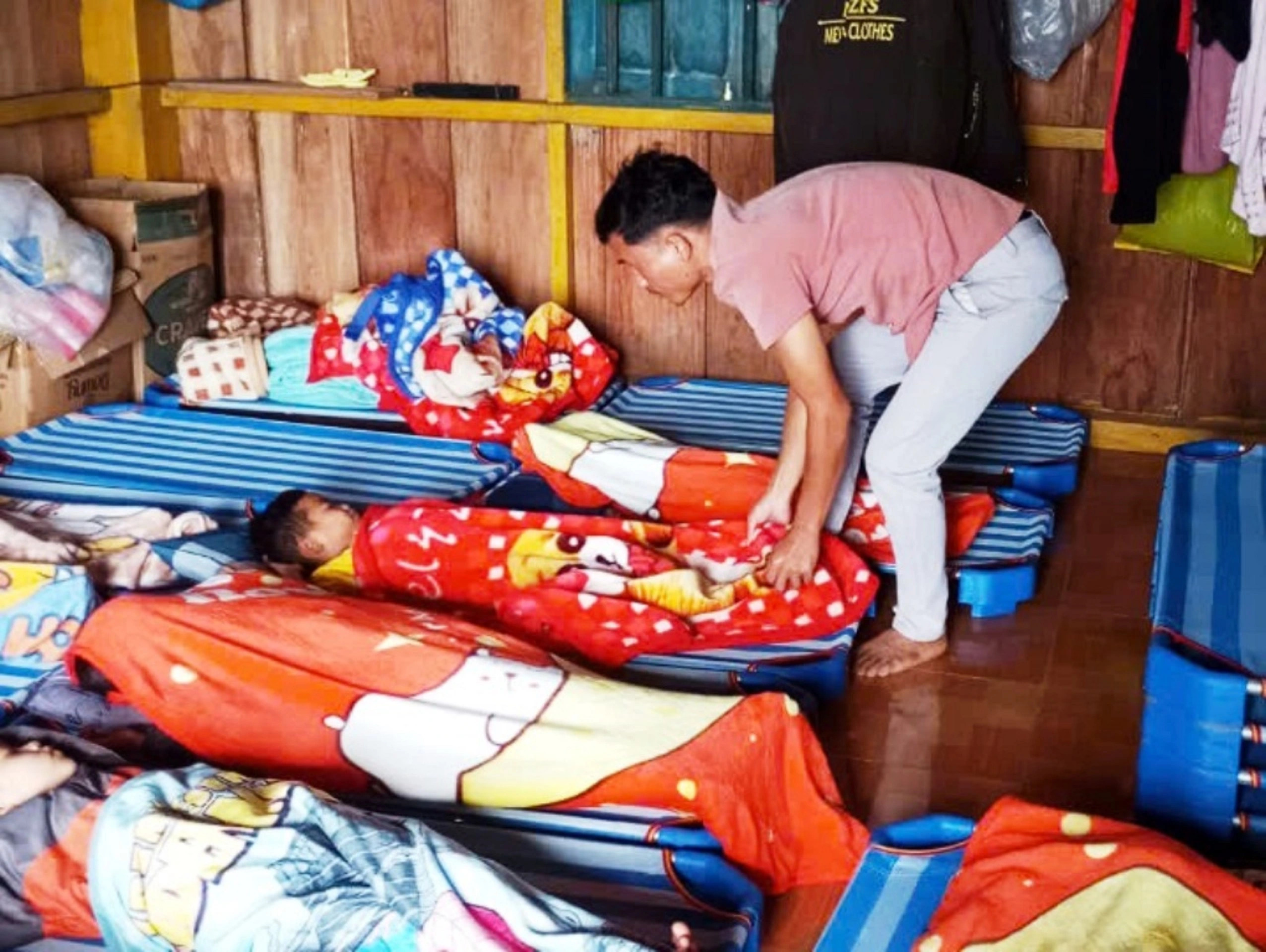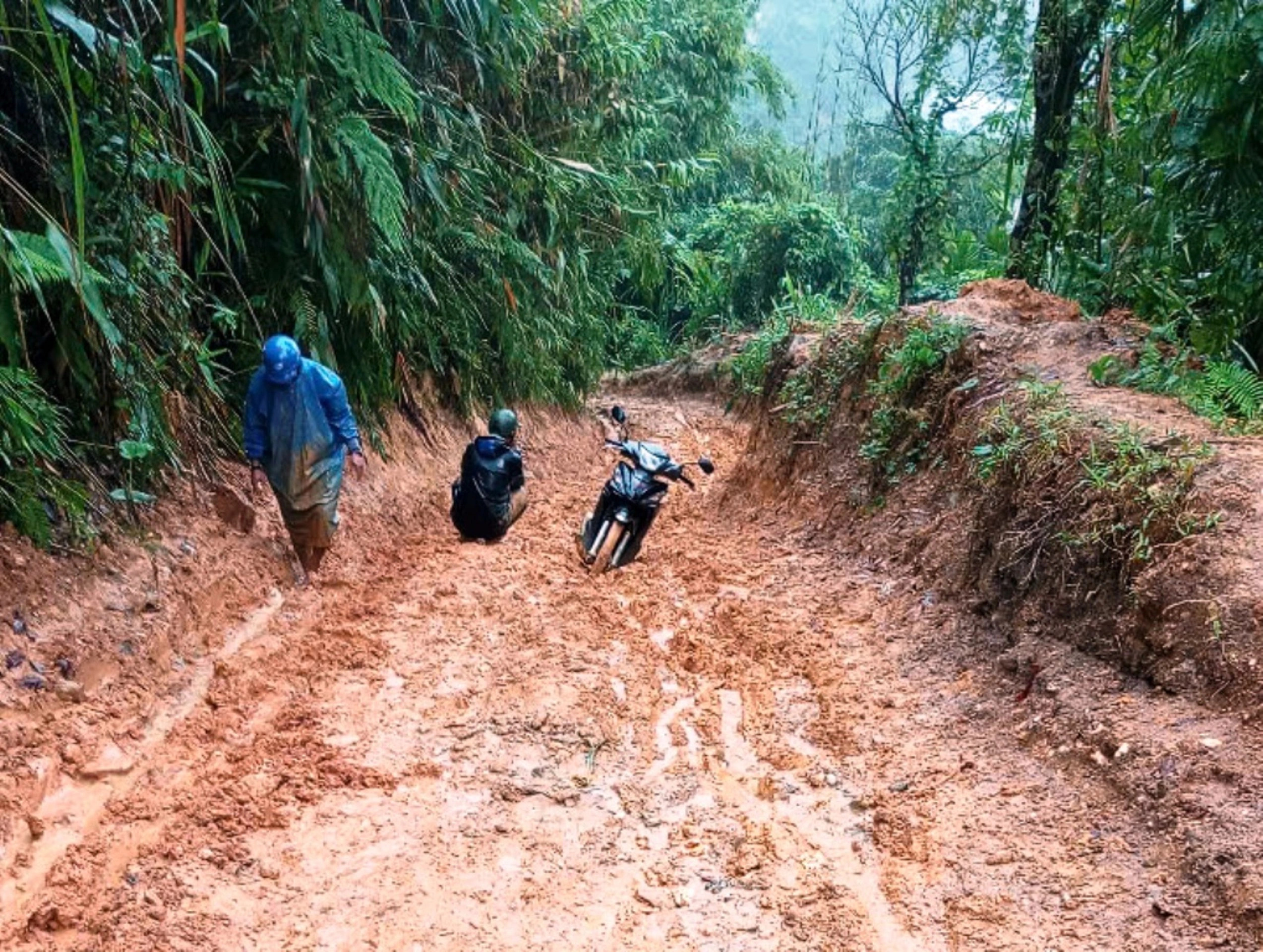Despite the hardships and poverty, these young teachers happily accept their jobs in the most remote and isolated areas of Quang Nam province. They come here not for the salary, but because it's their destiny. Almost their entire youth is dedicated to this journey of "sowing knowledge in the clouds."
IN PLACES WHERE THERE IS SO MUCH "NOTHING"
In the remote mountainous schools of Nam Tra My District (Quang Nam Province), names like "Ong Thai's peak" and "Ong Vanh's peak" in Tra Don commune evoke a sense of remoteness whenever they are mentioned. Difficult access and widespread shortages have made this area considered a "remote and isolated place." Most villages are isolated amidst the mountains and forests, lacking many basic necessities such as internet, phone signal, and clean water.
Seven years after graduating from Quang Nam University with a major in Primary Education, Mr. Ho Van Xuan (29 years old, from Tra Don commune, Nam Tra My district) was recruited as a civil servant in education and began working at Tra Don Ethnic Boarding Primary School. This year, Mr. Xuan was assigned to teach a combined 1st and 2nd grade class with 7 students in Ong Thai hamlet (village 4, Tra Don commune). "The students here are all from the Xe Dang ethnic minority, so most of them don't speak standard Vietnamese. Therefore, when teachers come here to teach, they have to prepare themselves mentally to be both teachers, fathers, and mothers, patiently guiding these young children," the young teacher began his story.

The arduous journey that young teachers Ho Van Xuan and Pham Van Tien must undertake every week to reach the school where they teach is fraught with difficulties.
For the past few weeks, every time he goes to class, Mr. Xuan, like many other teachers stationed at remote highland schools, is covered in mud, as if he'd just waded through a rice paddy. The only way connecting this place to the outside world is a treacherous trail; in sunny weather, it's full of bumps, and in rainy weather, the mud covers half the motorbike wheels. "Previously, if I went towards Tra Don commune, from the motorbike parking area to the school at Ong Thai peak, I had to walk an additional 7 hours through the forest, wading through many large and small streams. Fortunately, now that Hamlet 4 is connected to Tra Leng commune (Nam Tra My district), the distance has been shortened by half," Mr. Xuan shared.
V. WORKING AS BOTH A TEACHER AND A NANNY
At ten o'clock, the clacking of rulers against wooden boards mingled with the students' murmuring as they read, echoing through the mountains. The sight of sun-scorched hair and wide, round eyes of the children sitting on the tiled floor reading brought tears to the eyes of those who witnessed it. It was a combined elementary school class, yet the occasional cry of toddlers as young as two or three years old could be heard. In Ông Thái hamlet, there was only an elementary school, and the parents were away working in the fields every day. Therefore, despite not having received formal early childhood education training, teacher Hồ Văn Xuân, driven by his love for children, also acted as a "nanny," caring for eight additional preschool children.
Leaving his lesson plan, Mr. Xuan's hands nimbly chopped meat and picked vegetables to cook lunch for the children with the help of a parent. Like other teachers in the high mountain villages, at the beginning of the week, Mr. Xuan carries a backpack full of meat, fish, fish sauce, salt, rice, etc., up the mountain. "Most of the children come from very difficult circumstances; a meal with meat is a luxury. Therefore, to ensure nutritious meals, in addition to the support of philanthropists, I try every way to find three meals with meat for the children each week," Mr. Xuan shared.

Teacher Ho Van Xuan takes care of the students during their afternoon nap.
Furthermore, the classrooms were cramped and dilapidated, so to accommodate the students during their afternoon naps and to provide easier care, Mr. Xuan also used his own rest room for them to stay in.
"IT 'S FATE, IT'S KARMA"
For teacher Pham Van Tien (27 years old, from Tra Doc commune, Bac Tra My district, Quang Nam province), pursuing a teaching career and teaching students in the remote village of Ong Vanh (Tra Don commune) seems like a preordained destiny. Four years ago, Mr. Tien graduated from Quang Nam University with a major in Primary Education. For a young teacher, teaching in the most remote school like Ong Vanh village wasn't about the salary, but about fate and his calling.
From the school on Ong Thai hill to Ong Vanh hill, it takes more than an hour's walk along a trail through the old forest. Although he's from the mountains, when he carried his backpack up the steep 45-degree path to Ong Vanh hill and looked at the simple school, resembling a rice storage shed in the middle of a field, a common sight among the local people, Mr. Tien suddenly felt his legs give way. He never imagined that the school where he taught would be so rudimentary.
The early days for a young teacher were not easy. In a place without phone signal or electricity, students trudged out of the forest, and the teacher had to tirelessly care for them from morning till night. However, what troubled Teacher Tien the most was the struggle to find his students. "Most of the Xê Đăng people live on the mountainside, in cramped, steep houses. Before each new school year, teachers have to trek to each house to call the students back to class. Finding the children is difficult, but finding their parents is even harder. Sometimes we have to wait until night, when the villagers return from the fields, to meet them, and only after much persuasion do they bring their children back to class," Teacher Tien recounted.
Having come here three years ago, right after graduating, Mr. Tien has always taught at remote schools deep in the Ngoc Linh mountain range. This year, the school he teaches is a combined 1st and 2nd grade class with 6 students, located even further away; in addition, he also takes care of 8 preschool children. Because he is a contract teacher, Mr. Tien has only received about 5 million VND in salary each month. Meanwhile, he spends about 350,000 VND each month replacing the motorcycle's chain and sprockets, not to mention gasoline costs… "I am from an ethnic minority group, so I understand the difficulties and hardships of the children here. I see coming here to live in this remote village not for the salary, but as my destiny, my calling. More than anyone else, young people like me must nurture the dreams of these children, hoping that one day they will have the opportunity to leave the mountains to get an education, and then return to change their village," Mr. Tien asserted.

Teacher Tien and Teacher Xuan were covered in mud after overcoming the arduous journey.
According to Mr. Tien, most of the roads to the villages are unpaved, making travel during the rainy season a real ordeal. Teachers have to push their vehicles, inching forward step by step. The vehicles break down constantly, and every day they arrive at class covered in mud. Not to mention, during the rainy season, the streams in the forest rise, making getting to the villages dangerous. "But looking back, you'll see that the slopes that once made us slip and fall are... normal, and the hardships are just experiences. Sometimes we slip and fall on the road, getting dirty and soaking wet, but we still smile and are happy. It is these difficulties and hardships that have helped young teachers like us mature, become stronger, and have even more faith in our choice to become teachers," Mr. Tien confided.
Deeply connected to the mountains and clouds, the teachers in the highlands are accustomed to life "stationed in remote villages," familiar with the customs of the highland people, like one of their own. It would be difficult to recount all the hardships in these "classrooms in the clouds," but the youth of many teachers remains here. Day after day, they quietly choose to go towards these difficulties, carrying knowledge up the mountain slopes to the remote villages…
Source: https://thanhnien.vn/gian-nan-hanh-trinh-gieo-chu-tren-may-185241222194210316.htm
















































































































Comment (0)